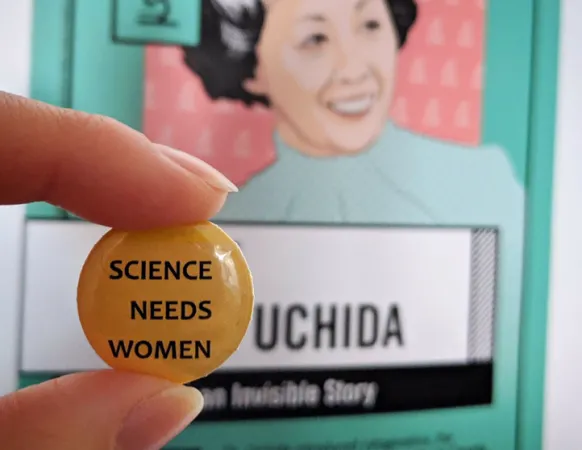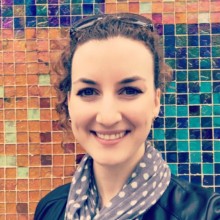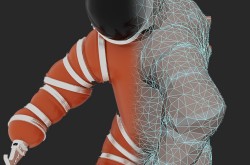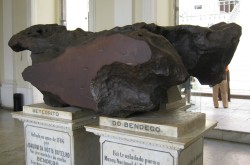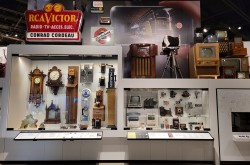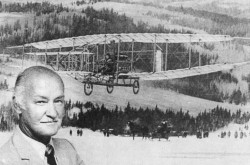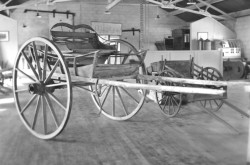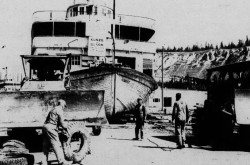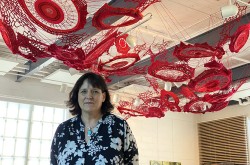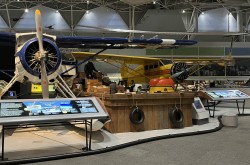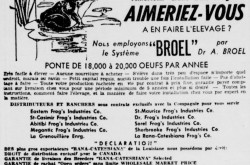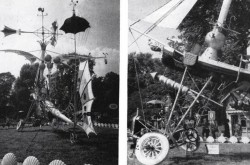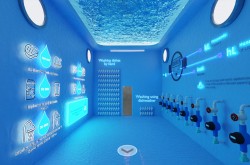Wikipedia edit-a-thons give recognition to women in STEM

On June 23 — which marks International Women in Engineering Day 2019 — Ingenium will open its doors to volunteer editors eager to participate in a Wikipedia edit-a-thon. In partnership with Engineers Canada, this free event, hosted at the Canada Aviation and Space Museum, will celebrate the achievements of women in engineering through the editing and creation of Wikipedia pages.
“An edit-a-thon puts facts on the page, allows us to change biases, and adding translations in both French and English gives more people access to stories in their native language,” says Sandra Corbeil, who leads the Women in STEM initiative at Ingenium.
Open to the public, spots for the event are now available for registration.
This is the second edit-a-thon hosted by Ingenium. The first event, held February 9, saw staff and the public come together on a Saturday morning for the International Day of Women and Girls in Science, to highlight women champions of STEM (science, technology, engineering, and math). Corbeil says she was inspired to host the first Wikipedia event, in particular, because of the recent Nobel Prize winner, Dr. Donna Strickland.
“Previous to the award, Dr. Strickland had no presence on Wikipedia,” says Corbeil. “The research she and her partner have done has influenced our lives and we need to raise more awareness about the great work women in STEM are doing. The day before we should have cared.”
“The day before we should have cared.”
~ Sandra Corbeil
Overall, it was considered a great success. Participants were excited, passionate, and overall contributed to making a change. At the end of the day, 22 editors contributed to editing 19 pages, making 130+ edits overall, creating two new pages, and adding 4,500 words. One member even acknowledged that, while she could edit Wikipedia pages on her own at any time, she doubted she would have jumped in without this event helping her get over that initial barrier.
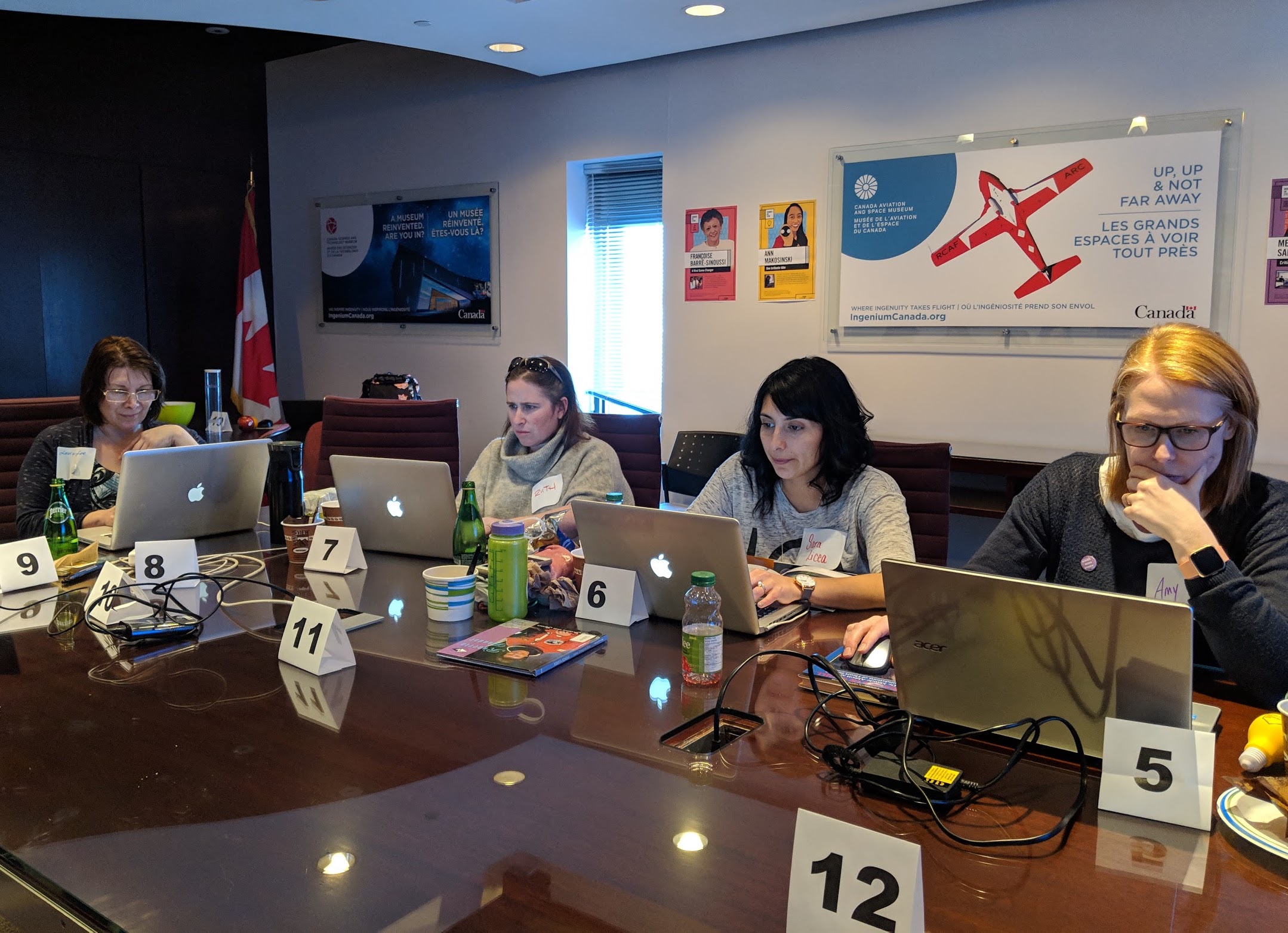
Participants of the edit-a-thon working to edit Wikipedia pages of Women in STEM.
Promoted at universities, the Women’s March at Parliament, and online, the free tickets “sold out” almost overnight. The morning kicked off with keynote Jennifer Thivierge, a PhD candidate in the Department of History at the University of Ottawa and recent fellow at Ingenium in Gender, Science, and Technology (read an article about her work, “Researching the untold story of Canada’s keypunch girls”). Thivierge’s presentation set the stage for an inspirational day, surrounded by women and men passionate about breaking down gender barriers.
The group was then led through a crash course in Wikipedia edit-a-thons by Farah Qaiser — a molecular genetics graduate student at the University of Toronto. Qaiser is actively involved in various forms of science communication, including edit-a-thons. While her talk ran through the basics of using Wikipedia, she also prefaced with powerful statistics including the fact that 84 percent of editors on the website are male, 76 percent English-speaking, and only 17.7 percent of biographies on the site are about women. Her mission for the day was to bridge the digital gender gap in STEM.
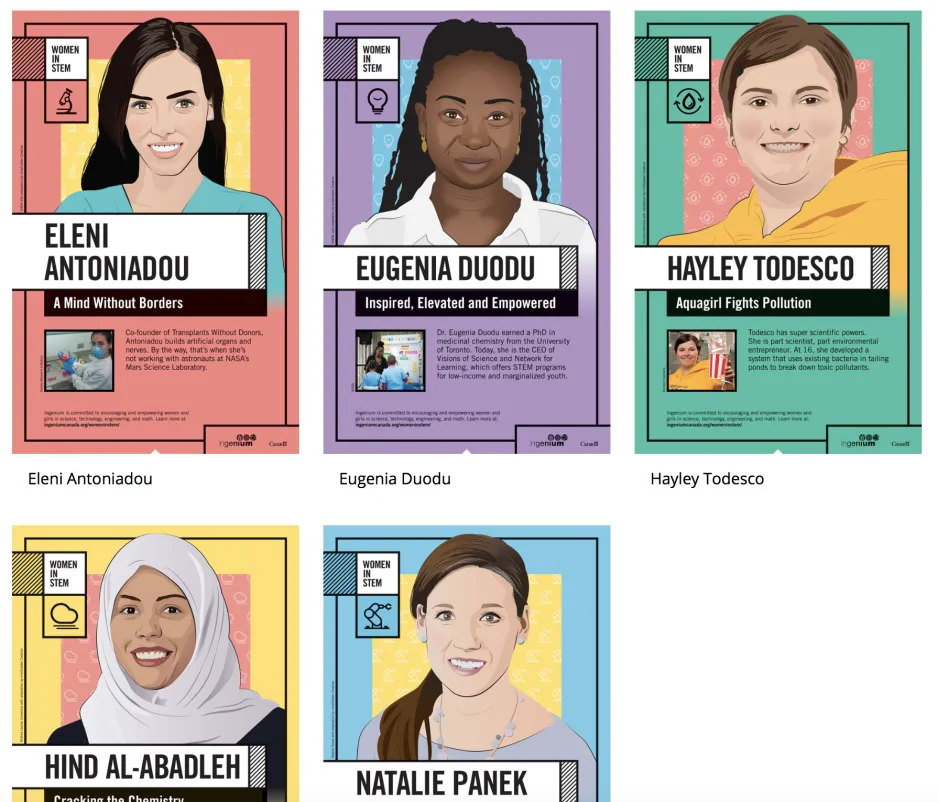
Free, downloadable poster series from the Women in STEM initiative.
Along with pins featuring the slogan, ‘Science Needs Women,’ participants took home colourful posters of women in STEM. This free, downloadable poster series is part of Ingenium’s Women in STEM initiative celebrating scientists like Hind Al-Abadleh who won the Fulbright Canadian Research Chair in climate change for her expertise in air pollution, Charity Wanjiku whose company designs and develops solar panels with the aim of alleviating poverty in Africa, and Ann Makosinski who invented the Hollow Flashlight, a device powered by heat from the hand.
Corbeil explains that it was important that the posters feature women from diverse backgrounds in the hopes that as many viewers as possible will be inspired by them. “If I can see her, I can be her,” says Corbeil.
“If I can see her, I can be her.”
~ Sandra Corbeil
Ingenium’s Women in STEM initiative strives to make women in STEM more visible, promote careers, celebrate achievements and advocates, and highlight issues of gender inequality and biases in order to improve women’s participation, inclusion, leadership, and recognition in STEM. Iron Willed: Women in STEM, is an exhibition currently traveling around Ontario and Québec. It shares the historical and contemporary stories of women who have made significant contributions to STEM, as well as the systemic barriers they’ve faced. For more details, see the travelling exhibition schedule.


